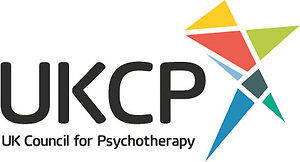
Counselling and Psychotherapy
Psychotherapy and Counselling
There are many views on the difference between these two titles; indeed for some there is very little difference. I believe it is helpful to be clear about what I offer and so below I have describe my understanding and given some examples to illustrate. These are not comprehensive but intended to give you a flavour. Please feel free to ask questions when we meet in our sessions.
I see them as both confidential, non-judgemental relationships in which you can talk about things that are troubling you and get heard and supported
Counselling
When you are really listened to and understood this can be enough to allow a fresh perspective to emerge. In turn, this can give rise to new options for how you manage your life and relationships. In addition, we may also agree to review your existing resources and abilities, to see if they may be used differently. After all, we have all got to this point in life by some means so there may be things we can build on. For example, you may manage interactions with others well in part of your life but want to build on this and transfer this ability to other relationships or situations. We may also agree that you want to create new additional capacities for managing and enjoying your life.
For example;
You find yourself often reacting with anger out of proportion to the issue, which ends up in a familiar unsatisfactory outcome. By developing a capacity to think about and reflect on, what you are feeling, you can begin to acknowledge and hold your angerrather than react with it, and think through other options to solve the problems you are facing.
Psychotherapy.
“I know I have abilities and I know what I ought to be able to do but somehow I keep repeating the same old patterns as if I am on automatic pilot”
The emphasis in psychotherapy is on deeper change sometimes involving a longer and more intense indepth journey. Together we can begin to uncover the unconscious beliefs you hold about yourself, others, and the quality of life. Research and evidence from recent neuroscience studies shows that we start to develop these beliefs from childhood in response to the situations in which we grow up. We are born vulnerable and are dependent on others in order to survive and thrive. A good enough relationship with our parents or caregivers is key to us becoming resilient adults able to deal effectively with life’s events as well as being able to enjoy fulfilling relationships and creative, productive lives.
We need some relationship to survive, even if it’s not a good enough relationship. Any relationship is better than no relationship. So a primary task while we are young and dependent is to maintain this relationship. We do the best we can at the time to adjust ourselves to be acceptable. This might mean shutting off parts or aspects of ourselves which in our young minds we feel are unacceptable.
For example:
If someone grows up in an emotionally unresponsive household, then they may have to shut down on showing feelings or getting close to others, as the lack of response from caregivers would be too much. These are powerful adjustments and run deep, they are often not updated by later life experiences. The person may even subsequently decide that they are better off alone, making a virtue of independence. This might work well in some areas of life but cause difficulties in close relationships. Indeed the end of another relationship might result in reinforcement of the better off alone belief, yet with a sense of yearning for something missed.
Psychotherapy is another chance to rework some of these old beliefs by use the therapeutic relationship to update them and to recover and integrate those lost parts. Whilst we will take account of your history, much of our time together will be spent in our sessions looking at, and working with, the ways you respond through your thoughts, feelings, behaviour patterns and sensations.
Adult Trauma
Where an event, circumstances or an accumulation of events overwhelms us, our brains and bodies respond in a way to protect and survive, this is referred to as our fight, flight, freeze and flop response. If we succeeded in dealing with the situation then our brains and bodies will return to normal. However in extreme danger or life threat that we are not able to manage successfully by these responses our brains and bodies don’t reset. It is like we are stuck looking for the threat even though the original threat has passed. Sometimes this might be in the form of flashbacks or an exhausting state of hyper-vigilance . This can create extreme stress and restrict how we are able to live our lives. In psychotherapy I help people update their responses, moving the memory of threat into history as an event that has passed, rather than it remaining as an influence on the present.
